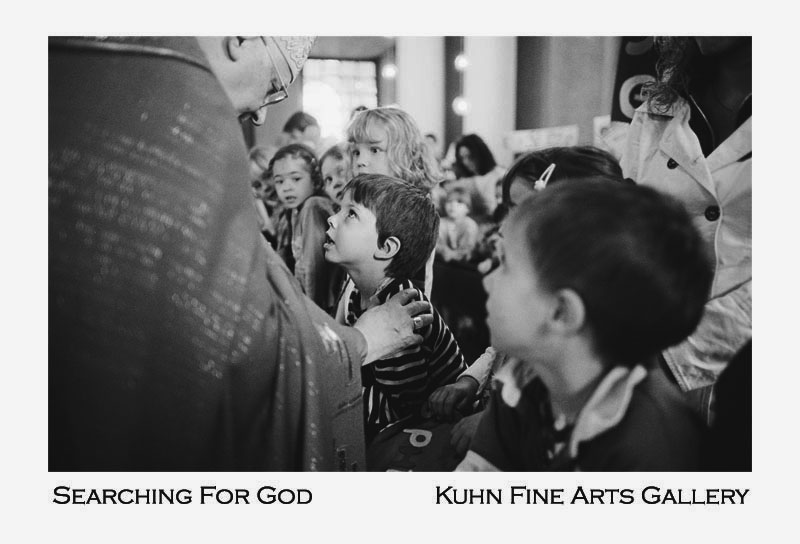Christianity as a journey - not for me
There is this interesting paradox in the way many of us understand the Christian tradition. We have been taught that to be Christian is to have a set of responses to questions. So to be Christian means to believe a set of criteria and if you do not believe these criteria then you are not Christian.
When though of this way, religion is nothing more than a contract one takes with a immature understanding of God. If we assent or believe in X, Y and/or Z then we will get A, B, and/or C. It is a forward way to live life but it is not a life that I find worthwhile.
Some people talk about religion as a journey. This seems to be a little better and far more common way to talk about religion. I have always had a difficult time with this image as a primary understanding to discuss religion because journeys are generally spoken of as having a destination. Few go on a journey without being prepared or having a destination in mind. Like the contact image above, the journey image works for people but it is an image that I find lacking in too many ways to make it my primary image for understanding Christianity.
Rather, I tend to think of religion as a search. To take a quote from John Caputo on this podcast, "When you are searching for something that you are at a loss for what you are looking for the search more earnest and radical."
 We say we know what God is and what God is like. We say we know what we are looking for as if we would know it once/if we saw it. Frankly, I just am not sure if I could spot God as easily as I can spot my car keys tucked in the couch.
We say we know what God is and what God is like. We say we know what we are looking for as if we would know it once/if we saw it. Frankly, I just am not sure if I could spot God as easily as I can spot my car keys tucked in the couch.
I continue to search and search, hoping to one day discover what I have been searching for. But until that day, of if that day never comes, I delight in the search.
When though of this way, religion is nothing more than a contract one takes with a immature understanding of God. If we assent or believe in X, Y and/or Z then we will get A, B, and/or C. It is a forward way to live life but it is not a life that I find worthwhile.
Some people talk about religion as a journey. This seems to be a little better and far more common way to talk about religion. I have always had a difficult time with this image as a primary understanding to discuss religion because journeys are generally spoken of as having a destination. Few go on a journey without being prepared or having a destination in mind. Like the contact image above, the journey image works for people but it is an image that I find lacking in too many ways to make it my primary image for understanding Christianity.
Rather, I tend to think of religion as a search. To take a quote from John Caputo on this podcast, "When you are searching for something that you are at a loss for what you are looking for the search more earnest and radical."
 We say we know what God is and what God is like. We say we know what we are looking for as if we would know it once/if we saw it. Frankly, I just am not sure if I could spot God as easily as I can spot my car keys tucked in the couch.
We say we know what God is and what God is like. We say we know what we are looking for as if we would know it once/if we saw it. Frankly, I just am not sure if I could spot God as easily as I can spot my car keys tucked in the couch.I continue to search and search, hoping to one day discover what I have been searching for. But until that day, of if that day never comes, I delight in the search.
Fetal cells, the Church and Christ
Recently I listened to a podcast from RadioLabs that
addressed the fact that a mother will carry in her body cells of the children
she bore for several decades. That is to say that a mother will carry within
her body foreign cells in which her antibodies do not attack.
And the thing is, we are not sure why these cells remain in
the mother’s body at all.
RadioLabs goes on to speak with researchers in this area and
the complexity of why these cells are there and what they actually do to the
mother’s body I will leave for you to hear from the source.
What came into my head was a question – If you give birth to
an idea or a cause, then will there always be your “cells” roaming around the
idea/cause even after you have jettison? And if so, then how long can your “cells”
remain in that idea/cause?
How long are the “cells” of the church able to move through
the body of Christ?
Lesson from a linguist
Recently Estee and I had a conversation with a couple friends of ours. He, Mark, works for Quicksilver and she, Lori, is a Ph.D student in linguistics.
Lori shared with Estee and I that in the world of linguistics, there are two types of people. There are syntacticians who even though sound like people who are very tactical with their sinning, are actually people who are somewhat focused on the correct rules of language. These are the people who are going to correct you when you use whom when you should use who or ought instead of should. If you will these are the letter of the law sorts of people.
There are others who study language and are less interested in the rules of the the language but are more interested in how people put words together. While the syntactician will correct your grammar, this second group (and I have forgotten their name!) will hear an odd turn of a phrase and say, "that is really interesting that you use those word(s) in that way." If you will these are the people who are interested in how language is actually used by people.
Both groups see/hear a language anomaly but have different responses to it. One is seeking to be corrective and the other is seeking curiosity.
It got me thinking about Christianity. When you and I come across someone who is practicing the faith in a non-traditional way, do we take corrective steps or curious steps?
Are we interested in ensuring the tradition stays constant and uniform or interested in discovering the ways in which people's lives are being influenced by the faith and the faith is being influenced by their lives?
Are we corrective or curious?

Be the change by Jason Valendy is licensed under a Creative Commons Attribution-NonCommercial-ShareAlike 3.0 Unported License.

